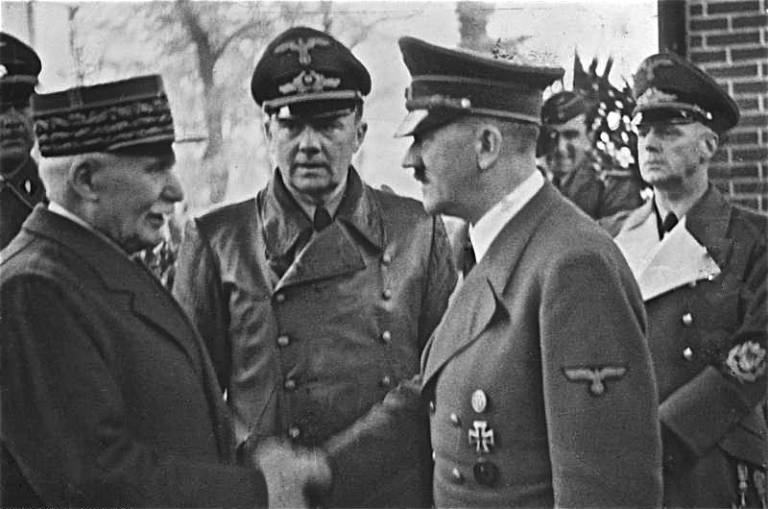Heroes & Villains: The Effects of Combat Heroism on Autocratic Values & Nazi Collaboration in France
12 February 2021, 10:00 am–11:30 am

A CCSEE seminar with Prof. Pauline Grosjean (University of New South Wales)
This event is free.
Event Information
Open to
- All
Availability
- Yes
Cost
- Free
Organiser
-
CCSEE
Location
-
Zoom
In this online seminar, the speaker discusses how perceptions and the construction of a heroic military narrative helped undermine democratic values during the Vichy regime in Nazi-occupied France. The issue is examined from the housing of collaborators in areas where regiments having served under P. Petain in Verdun had originated. A Q&A session will follow.
The paper abstract can be found below, please click here for the whole paper:
To what extent can heroes legitimize otherwise strongly-proscribed and repugnant political behaviors? In this paper, we exploit the purposefully arbitrary Noria [millwheel] rotation of French regiments to measure the legitimizing effects of heroic human capital, gleaned through exposure to the pivotal Battle of Verdun under General Philippe Pétain in 1916, on undermining democratic values. We wed this with a unique newly declassified dataset of 97,242 individual collaborators with Nazi Germany. We show that, during the Pétain-led Vichy regime (1940-44), municipalities that raised troops that served under Pétain at Verdun later housed 7% more collaborators than otherwise similar municipalities. The effects appear across the range of collaboration, including joining Fascist parties or paramilitary groups that hunted Jews and resistants, or directly joining German military units. Thanks to hand-collected novel individual-level data on Resistance and municipal-level data on electoral results, we provide evidence consistent with these values being propagated through a heroic network, and being reflected in vote choices that emerge in the inter-war period, exacerbating polarization. We find these effects continued to shape the Left-Right divide in France after the war, becoming particularly salient in times of social crisis.
About the Speaker
Professor Pauline Grosjean
at University of New South Wales
More about Professor Pauline Grosjean Close
Close

